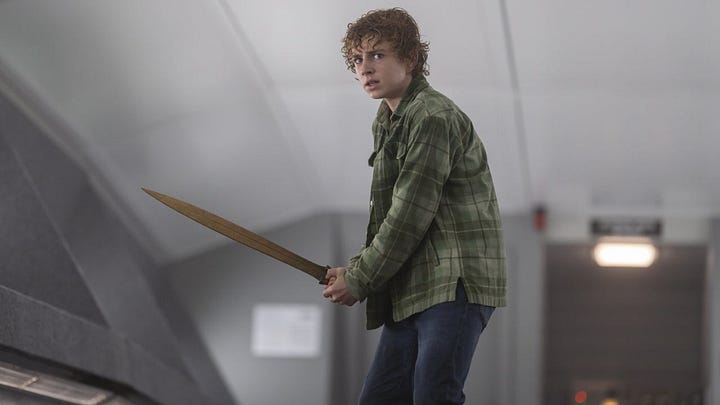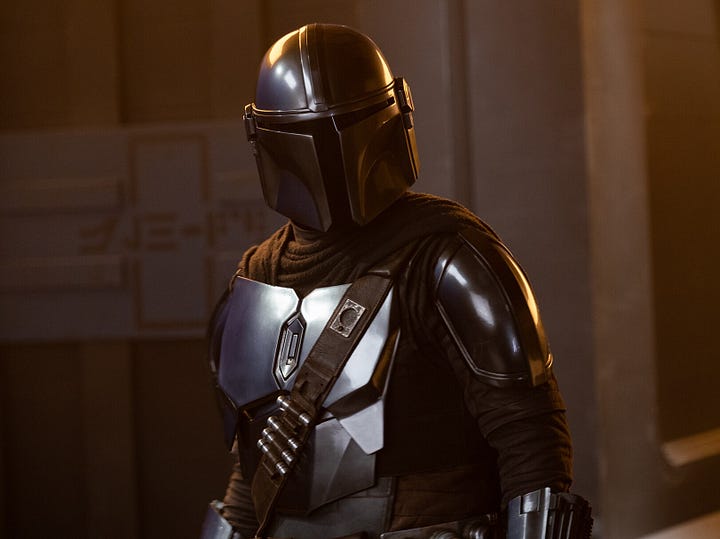(painting: The Artist's Garden at Giverny by Claude Monet, 1900)
“Kit,” I urged, giving him a little nudge in the shoulder.
“Hmm?” he hummed, looking down at me with searching eyes.
“The question?”
“Okay, sorry. Hit me with your best shot.”
“...What does your full name mean?”
His eyes narrowed. “Kitchi?”
“Mm-hmm.”
“There’s a few translations," he explained, playing idly with a strand of my hair. “But it can mean large. Strong. Brave.”
“Fits you like a glove,” I murmured. He chuckled lightly, and I felt my heart swell. “It’s Algonquin?”
“Yeah. My mama named me,” he mused.
My lips pulled into a soft smile. “Mine too. Reina means–”
“Queen,” he interrupted, kissing the spot between my brows.
“Yeah,” I confirmed, tracing the line of his jaw without thinking. “Someone’s been studying.”
“Common knowledge, I thought.”
“Not really as common as you’d think.”
—snippet from the first draft of Project Forecast
What’s really in a name?
This topic came into my mind as I’ve been developing my writing projects, especially my newer ones. I absolutely love picking names.
Actually, let me say I have a love-hate relationship with picking names. I love the principle of it— picking names that might have hidden meanings, are culturally relevant, or just fit a character’s vibe is always super fun. However, I make things a bit harder for myself because I always Google search the names I come up with to avoid giving a character the name of an existing person (to the best of my ability).
If I’ve narrowed down a list of first and last names, I’ll search almost every combination to make sure I’m not accidentally naming a character after a convicted criminal or a CEO of an insurance company (yes, those are both instances that I’ve come across). Sometimes, it’s unavoidable. There are always Instagram, Facebook, and LinkedIn accounts (and obituaries, which are surprisingly common). But, I do my best to pick names that are both unique and meaningful to the character and who they are.
(Side note: popular authors and books tend to not have this problem. Essentially, if you Google a character’s name, you tend to only find search results relevant to the fictional character, not real people sharing the same name. But, if you’re just starting out, it’s harder to escape. I recently found that the male lead from a very popular, recent trad-pub release shares a name with an adult film star, which is very unfortunate. This is why I try to avoid situations like this at all costs by researching ahead ToT)
Sometimes, I’m super on-the-nose with names. I gave a character who’s an archer the last name Fletcher. Meteorologists in Project Forecast are named Reina Torrijos (sounds like “rain”) and Stuart Boltz (sounds like “[lightning] bolts”). Others are more subtle. In Project Lear, names like Irwin, Sloan, George, and Pierce weren’t necessarily chosen for their meanings, but are meant to evoke generational wealth and privilege— one of the prominent themes in the book.
Since names are how we identify each other and introduce ourselves to new people, names are really, really important. I think names are one of the easiest avenues of representation. They influence how we perceive people, whether intentional or not, and they can be really useful for building a memorable character.
What are some of your favorite characters’ names— and how might your reading experience have changed if they were different? Share in the comments!


Here are two characters with names I love— Percy Jackson (left, portrayed by Walker Scobell) and Din Djarin (right, portrayed by Pedro Pascal).
Percy Jackson is deceptively simple and… ordinary. And his name sounds believable enough to be that of a random kid in an American classroom, except that “Percy” isn’t all that common nowadays. We come to find out that it’s a nickname for Perseus, and all the weight and history and plot-relevance that holds… *chef’s kiss*.
Din Djarin is made-up, but I just love the way it sounds and flows. Invented names like his are a great worldbuilding opportunity! Rumor has it that the Mandalorian’s first name is actually Djarin, and the ordering of his names according to his in-universe culture might have been inspired by East Asian naming conventions. (This isn’t confirmed, and I won’t get into it because Star Wars lore is a mess, but it’s a nice thought. :))
names as characterization
What is your character’s relationship with their name? Do they go by their full name? A shortened version of their name? A different nickname entirely? Are they particular about the pronunciation? Do they tell people what it means?
You can tell a lot about a character from their name and how they address themselves. In my personal life, I go by a shortened version of my name because it’s what my parents call me (and it’s also less syllables to pronounce haha). Online, I go by a nickname.
Consider your character’s personality and background. A guarded character might insist on being called by their full name under normal circumstances, but melt when their love interest calls them by an affectionate nickname. A fun-loving character might go by a silly nickname that has nothing to do with their given name. A character who’s embarrassed by their given first name might go by their middle name. The list goes on.
For example, Project Lear takes place at a UK university with a lot of international students and British students with diverse cultural backgrounds (many with parents or grandparents as immigrants to the country). Aramide Fashola, the main character (whose parents are Nigerian immigrants), goes by “Ara” because it’s shorter— and also tends to save her from the infamous “where are you from” questions. A side character, Jiahao Xie (whose parents are Chinese immigrants), simply goes by “Jon”, which I chose because it’s common for East Asian people in Western countries to go by Anglicized first names. I don’t need to explicitly state that these characters have assimilated to some degree, but the names they choose to go by can hint at that lived experience.
draw from personal experience
I find it helpful to draw from personal experience when choosing names for your characters. Observe people around you! How do you and others introduce yourselves to new people? Are there patterns you notice in certain spaces? What kinds of names do you hear at school versus at home? At work? On TV? In books?
I know a lot of people who choose to be addressed in certain ways in certain contexts. Some people, like me and some of my friends, use cute phrases to teach people how to pronounce their (typically “ethnic”) names. Some nicknames fly with certain people, and not with others. That, in itself, is also characterization. Does your character help others through the pronunciation of their, or expect others to just… get it right?
You can draw from your own culture and ask family members to verify the authenticity. Or, you can even name characters after people you know— but tread lightly. (I personally avoid naming characters after people I know at all costs. To each their own!)
do your research
If you’re not familiar with the background of the character you’re writing, please, please, please do your research. If you’re going for respectful representation and intentionality (which you always should), don’t give characters names that are stereotypical or even harmful. And unless you’re writing fantasy or sci-fi (or anything else divorced from the real world— those are a whole other ballgame), I wouldn’t recommend inventing [insert language here]-sounding names for characters.
You can use resources like name lists, but for a more extensive and detailed database, I use Behind the Name. This is my ride-or-die for naming.
Behind the Name features super detailed search criteria, which I think is its strongest draw. You can filter by languages; countries; letters you want the name to start with, end with, or include; meanings; gender; and more.
I also find that their entries are some of the most thorough and helpful when I’m looking for related/similar names, the origin of a name, etc. I write a lot of characters from cultures I’m not personally familiar with, so Behind the Name has saved my life more than once. And they have a site for surnames and other tools too!
Also note that certain cultures have different naming conventions— and by that, I mean, there’s more than just the name. There’s the number of names, the order of names, the form of names. For example, many East Asian cultures write family names before given names/first names. Many Latin American and Hispanic cultures have hyphenated or two surnames (from the mother and father). Some cultures (like Russian) have gendered surnames. Keep these smaller details in mind as well.
wrapping up
I hope you found this little love letter to names and mini-naming-guide enjoyable to read, as well as the little crumbs from some of my own writing projects! I technically have no qualifications to give writing advice, but I’m really passionate about this topic and wanted to share some of my thoughts and approaches. These are really simple tips that anyone can take inspiration from and implement! No expertise necessary :)
Should I post more writing craft-focused pieces like this one? Want to yap about your own thoughts on naming characters? Let me know what you think in the comments!
Song of the day: “You Don’t Know My Name” by Alicia Keys




Another thing I have to worry about with writing *sigh* (I just found one of my characters has the name of a smaller influencer)
Omg this article was SO GOOD! So well thought out! I've always loved falling down rabbit-holes while finding names for my characters, too. I never thought about googling to see if the names I pick are actual people, but I might need to after reading this 😳 Definitely going to check out Behind the Name, too! Looks like an awesome resource!